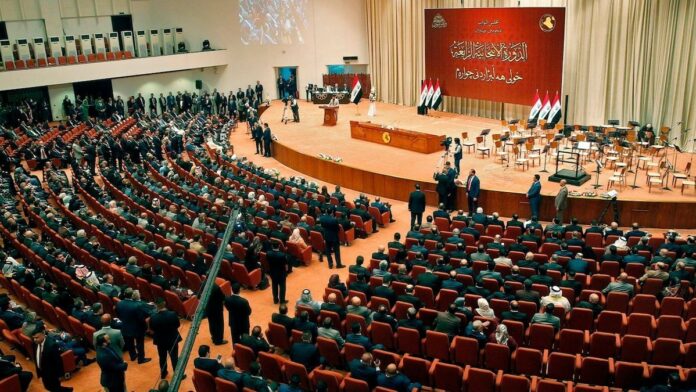Khudair Abbas Al-Dahlaki – PhD Program – Al-Nahrin University.
introduction
First of all, it must be confirmed. that dealing with this issue is based on national motivations and a sense of responsibility in criticizing the mechanisms of party action in Iraq. Iraq is one of the first countries in the Arab world and the Middle East to see the emergence of political parties, Since the promulgation of the first Political Parties Act, called the Political Associations Leave Act, which was passed by the Iraqi Government on July 2, 1922, the law has included many restrictions on the parties proposed to form as a result of the intervention of the British Mandate Authority at the time, fearing that these parties would demand independence.
Political life and party work in Iraq have gone through multiple and varied stages between prosperity and decline at times; freedom and oppression at other times; and between a single ruling party and a multiparty party at other times. All in all, party action in Iraq has not taken a single course and has not been at a steady pace, depending on the nature of the political system and the internal political landscape affected by the conflicts of international powers and their interference in Iraqi political affairs.
Stages of Party Life
Party life in Iraq can be divided into four phases, as follows:
1. The first phase, which began in the era of the monarchy that lasted from the founding of modern Iraq in 1921 until 14 July 1958, was marked by the existence of a law regulating the functioning of political parties and elections in an atmosphere of political tolerance, despite the hegemony of political forces and figures associated with the interests of Western powers controlling the international political landscape at the time; A group of nationalist-oriented parties (the Iraqi National Party, the Ahrar Party, the Umma Party, the Iraqi Ennahda Party, the National Brotherhood Party, Iraqi Al-Ahed Party, and the Constitutional Union Party) was established with several characteristics, whether in power or opposition:
The parties’ orientations were patriotic and far from narrow tendencies or subsidiary loyalties, contributing to continued national and national consciousness.
Notes the limited political agenda and the absence of a future vision for the regime in Iraq, which was limited to demanding that the King’s powers be symbolic and that a constitutional government be formed that represents the will of the people. This call was adapted because the monarchy refused to adopt the project of political openness, which is based on political pluralism to monopolize power and remain in it.
Limited Party Fanbase, for the Modernity of the Political Parties Experience
What leads the scholar to say is that the most prominent feature of the parties at this point was close to being described as non-mass salons confined to the elites made up of an alliance between the emerging bourgeois class and feudal lords with national orientations. With slogans that represented the social and political orientations and tendencies of the elite at the time, at the beginning of the 1930s, the growing role of the military in politics began to emerge. The emergence of mass ideological parties, which meet the specifications of political parties despite being a reflection of external ideologies for independence, State-building and social justice as well as the development of charismatic leadership, responsible patriotism, awareness, high cultural level and social presence, organizational structures and formations that have the capacity and potential to mobilize and mobilize the masses and raise the political awareness of segments of society have qualified them to carry out public activities and practices that have had a significant impact in changing some of the decisions of the existing authority, such as the 1948 demonstrations against the Treaty of Portsmouth, In spite of this relative climate of pluralism, the existing authority has made attempts to prevent and suppress some party leaders, some of whom have arrived to carry out death sentences, as was the case with the leader of the Iraqi Communist Party, Yusuf Salman (Fahd), on 14 February 1949.











